Early morning at the Main Ger
The morning sky was slightly clouded over, the much- desired view of an unpolluted sky streaked with stars out of reach. For now. It was warm, unseasonably so, for this close to October, this high up, this deeply embedded in the Sambygaryp Mountains. The sun peeks over the far hills and paints the west as the cashmere goats and sheep lie quietly, chewing their cud.
Kushkillim, the family dog, arrived two days ago battered, beaten, bitten and bruised, largely by people he’d approached for food on his long journey from the family’s small mud brick house in town way out here to find his master. He had a terrible bite behind his right ear, was lame in his left front leg and his hip caused him to whine when I stroked his fur.
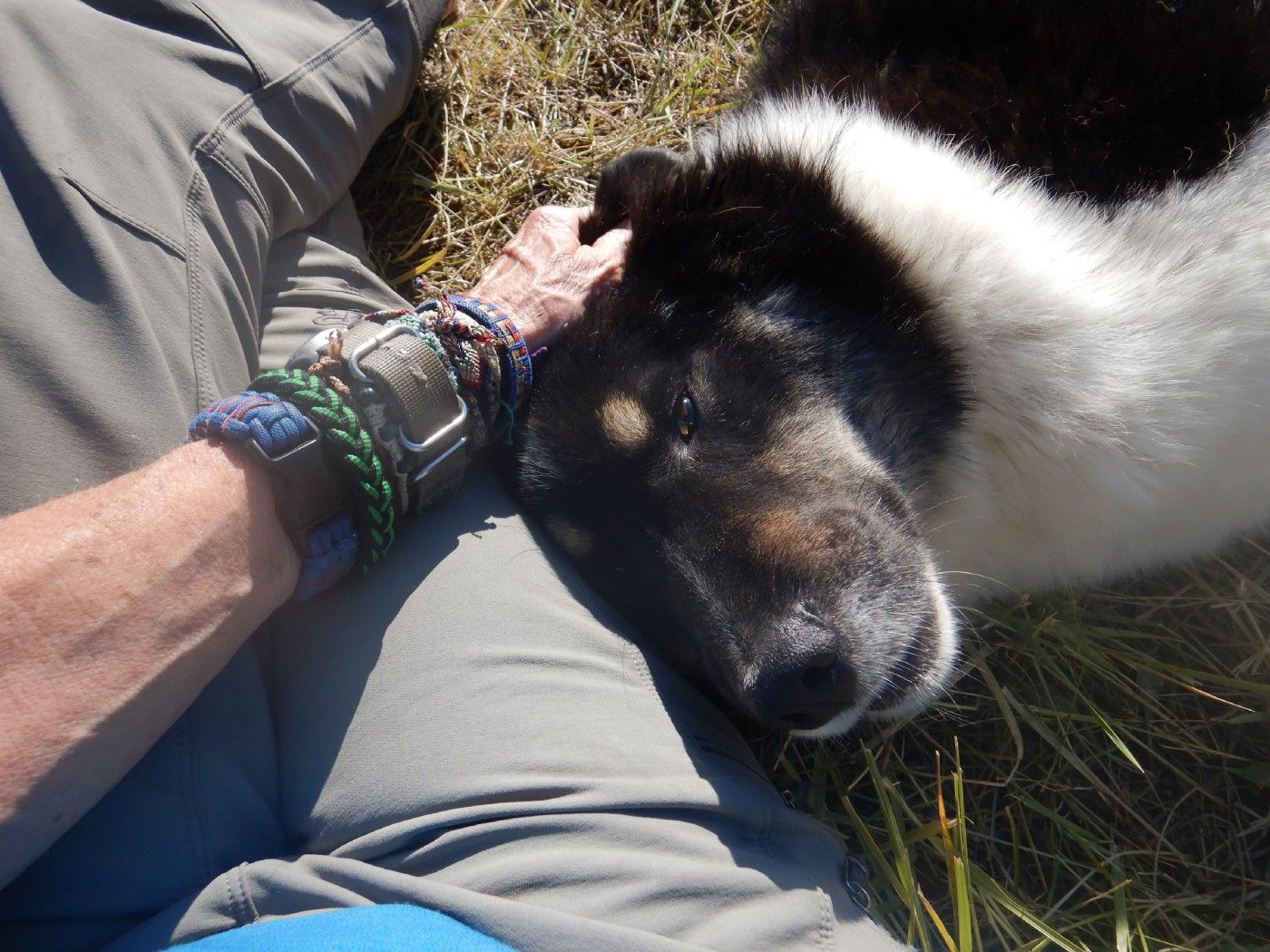
However, he’s getting better fast. I sneak him treats from my food supply and am constantly cuddling him. It’s paying off, as this morning, after lying on the grass under the thorn bushes for two days, he was up and bounding ( mostly) to accompany me to the family toilet.
Toilets here are rough. Ours is a hole in the ground behind the bushes. The three small children go everywhere, as evidenced by the small pats of white paper and little piles. When I travel to Third World countries where one goes outside at will, I am reminded regularly when I come back to the States of how damned inconvenient it is when you can’t just find a bush somewhere and drop trou. While that can make walking around at night awkward you wouldn’t want to do that here anyway. Wolves. Yes, I prefer porcelain flush toilets, of course I do, but this way of life makes taking care of business a lot easier.
Shit is a way of life here. With livestock constantly on the move and sleeping at the ger, the “yard,” such as it is, is a carpet of goat and sheep pellets and cow patties. And, of course, horse apples.
Which is handy. There are almost no trees, just endless dense thorn bushes, the thorns reaching as long as two inches. These bushes cover the landscape, and their dying branches are our firewood.
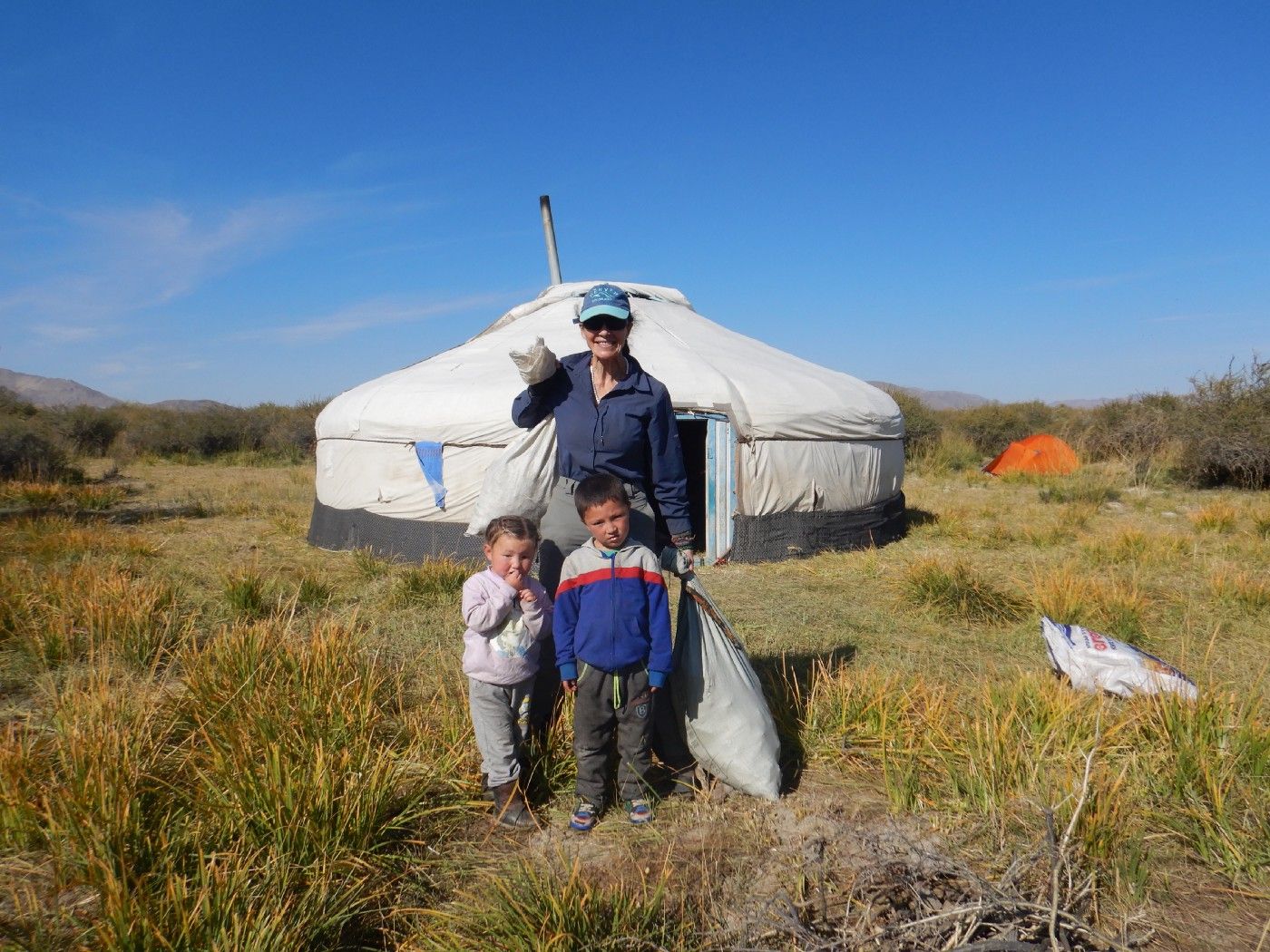
Dried cow dung and horse apples are the “coals,” which I gather each day by the huge bagful to dump in a sunny spot for final drying.
You go through a lot of fuel here. First, we’re constantly making tea, we are always washing dishes, we have to boil milk and cheese for the huge variety of dairy products which grace the table every day. Fuel means food, warmth, a clean face, and if you’re very VERY fortunate, a clean body once a week.
At the moment, I am sitting on the floor of the main ger while my host, Seku, his mother and one of the nephews are eating breakfast. Seku’s mother, a lively, apple-cheeked woman of 72, is going to show me traditional handcrafts this morning.
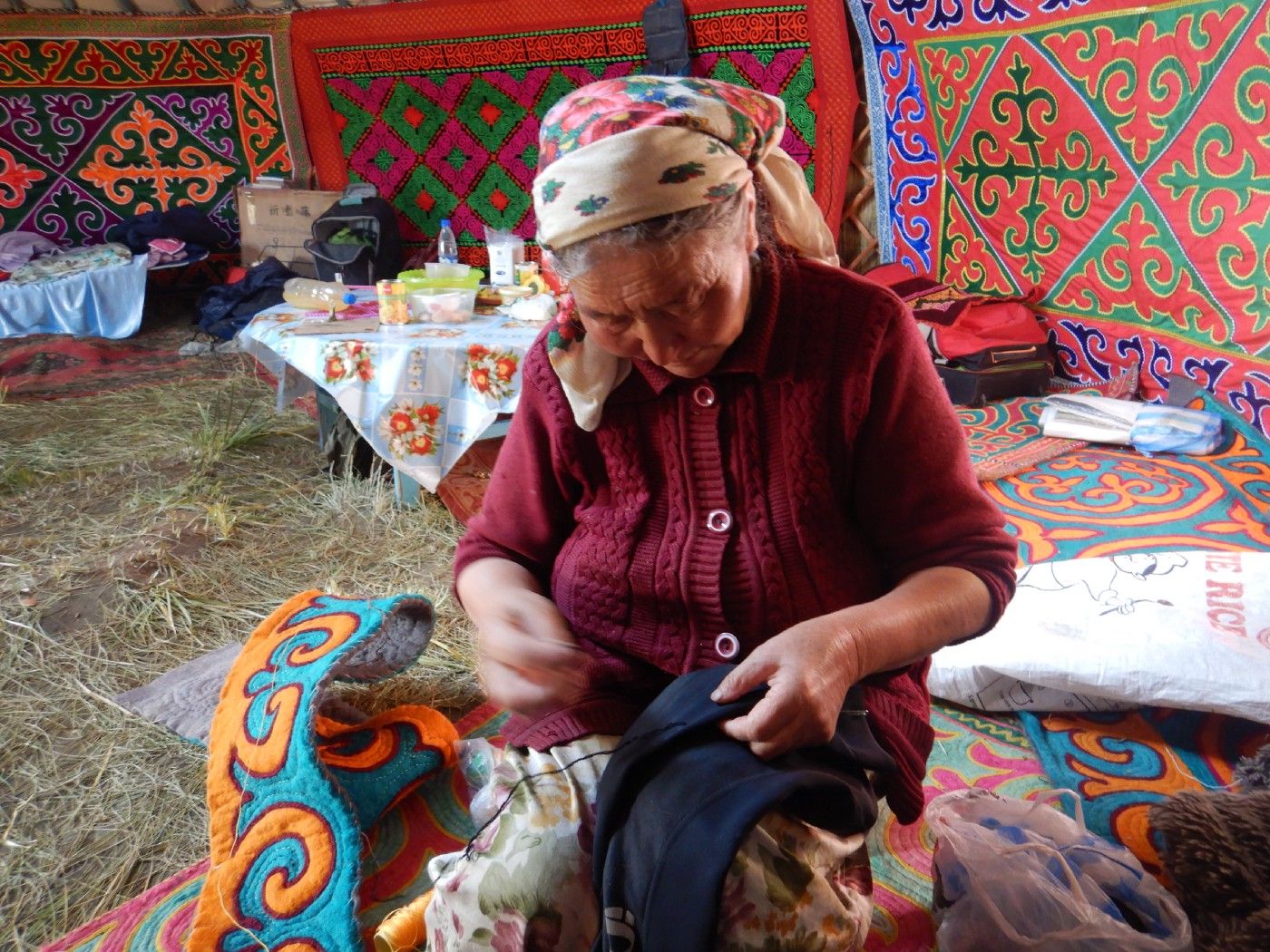
The ger is covered with her colorful work, the result of years of painstaking hand labor for forty years. Each piece uses traditional symbols to depict life, from marriage to love to the importance of family. Seku grew up in the ger with these brilliantly-colored patterns right over his head, handed down through the centuries.
Seku’s mother has poor eyesight. I gave her an extra pair of my 3.0 readers. which caused her work to swim into focus. Those readers, perhaps all of $6.00 at my local Costco (I buy them in bulk because I break and lose them in bulk) were a huge improvement to her lifestyle. Such small things, such a big difference. She was utterly delighted that such a gift could help her see better.
After lunch (and after I get more firewood and dung for her stove) I will head out by Mongolian horse to mind the goat and sheep herd as they move steadily clockwise through one field of brush and thorn bushes after another.
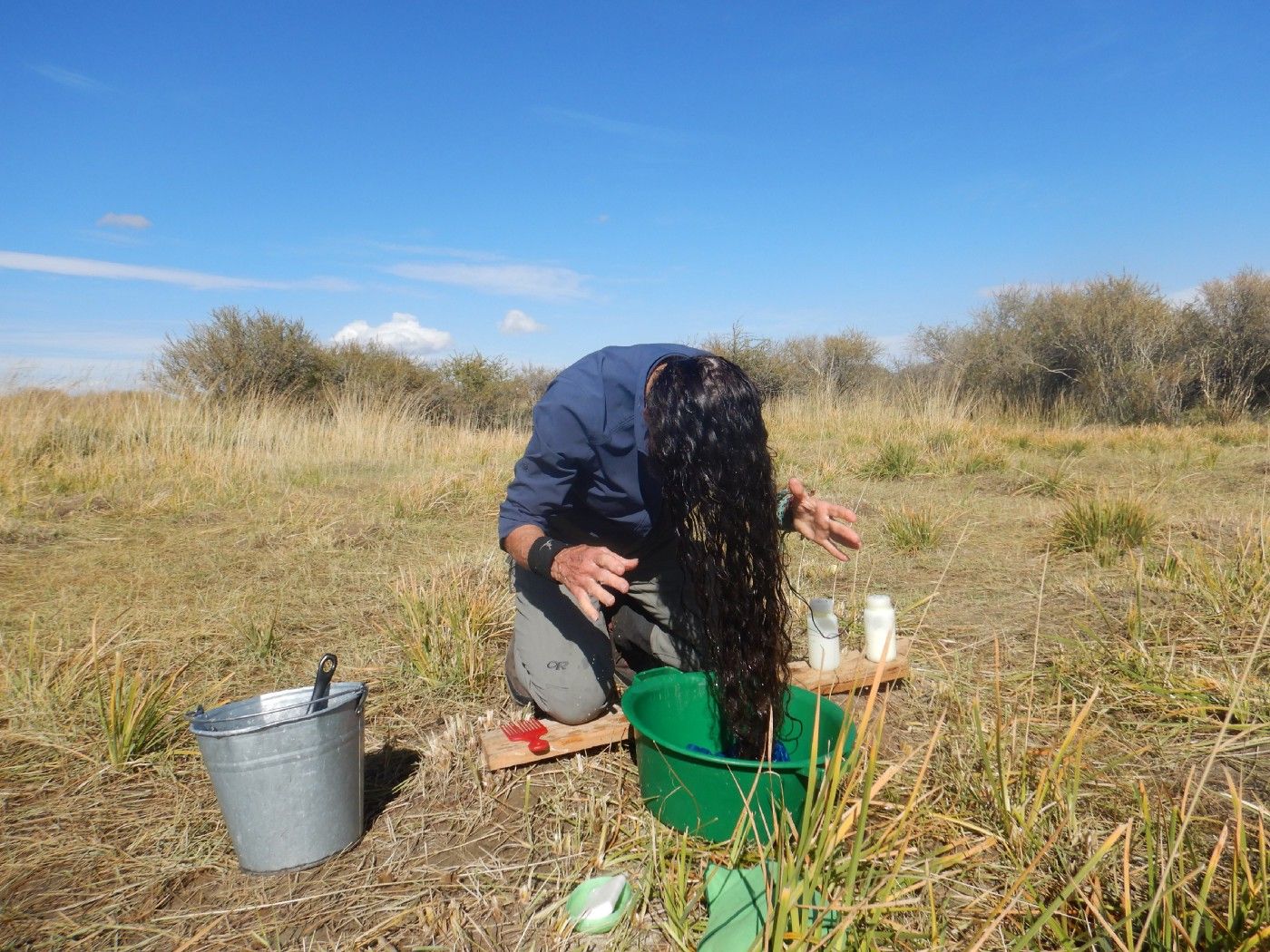
The above is our washroom, where we splash water on our faces and brush our teeth. The green tub is for laundry, which we dry by curling the edges of our clothing under the tight ropes that snug the circumference of the ger. Barring rain, everything is dry in a New York minute.
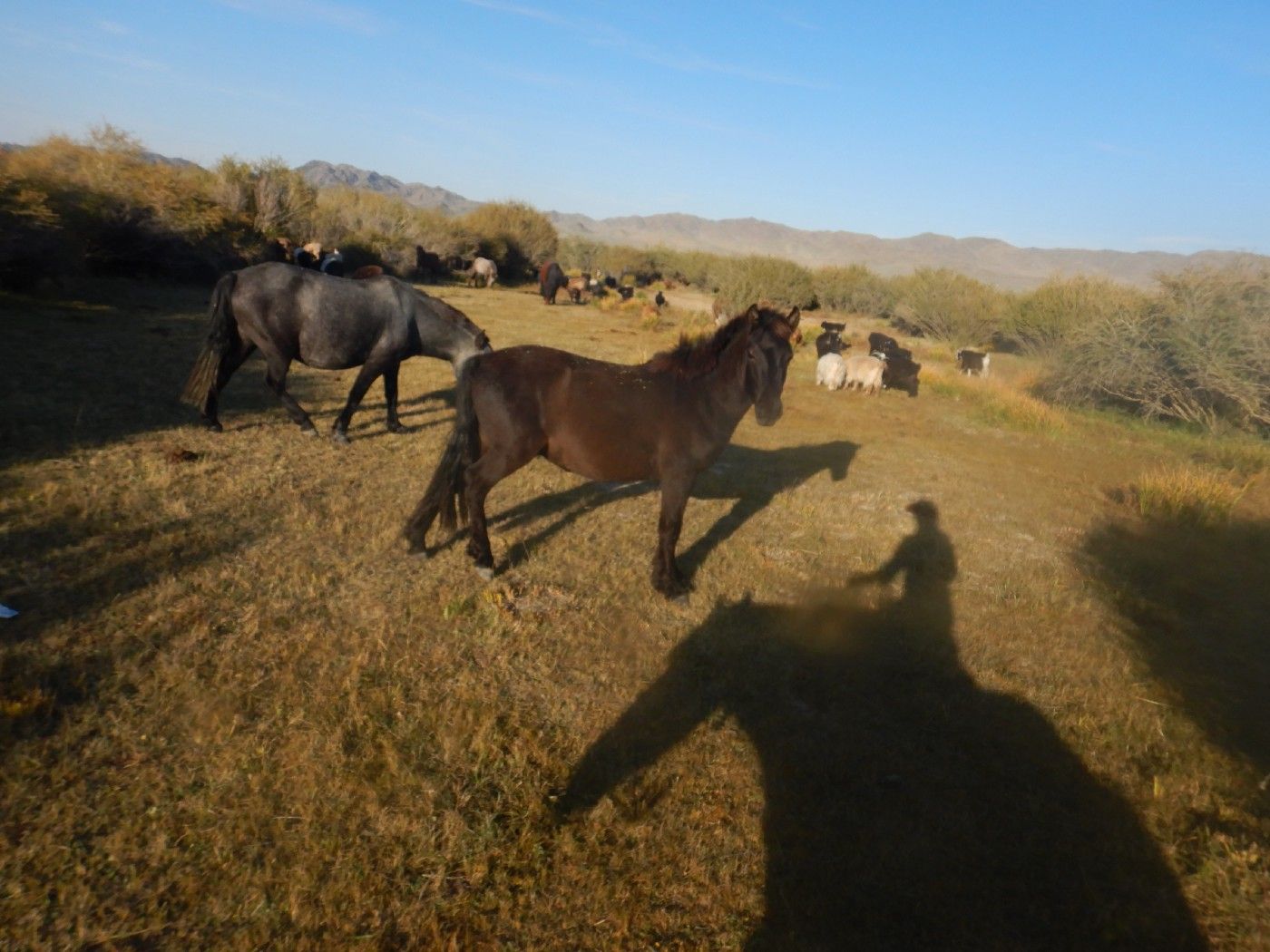
Moving the animals
Herding is a great deal like trying to control a large drop of liquid mercury on an uneven and moving surface. There are always three baby goats at the rear getting lost or left behind, or as happened yesterday, the herd spread out far and wide horizontally, making keeping a perimeter very challenging. My only concern is that as the herd moves, I know where they are, and nobody’s left behind. A typical problem is that other animals, typically marked with a colored ear clip or different paint will wander in and join our herd. I simply could not be happier, being on a horse, managing a quietly grazing herd, or waking up to a chilly morning to a rising pink sun over the far mountains.
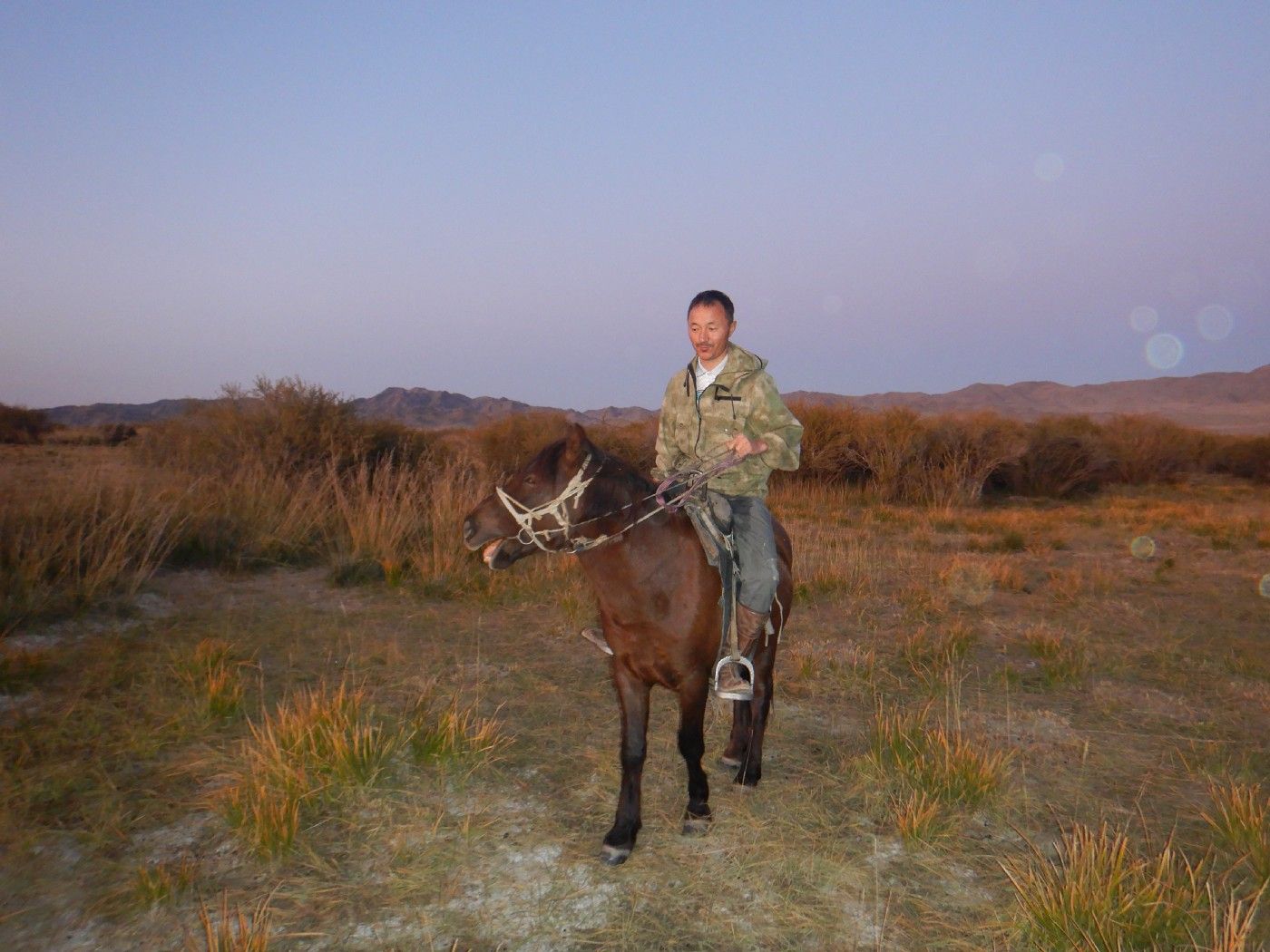
This is what it’s like to do a traditional home stay. I frankly couldn’t be happier. Once I found a place to put my tent far enough away from the main ger so that I could sleep, I was in heaven. I grew up on a small family farm, so tending to the herds on horseback is as natural to me as breathing. The people here are a little surprised that a tourist can ride their horses, or herd, or be able to swiftly adapt to what they call “countryside life.” Once you do, however, your willingness to throw in to help out, schlep water, gather wood, make food, wash dishes or do any other of the endless chores that make up Mongolian ger life makes you a very welcome guest. That gives them time to breathe, rest, play with the kids, and enjoy the gorgeous countryside that stretches in all directions.
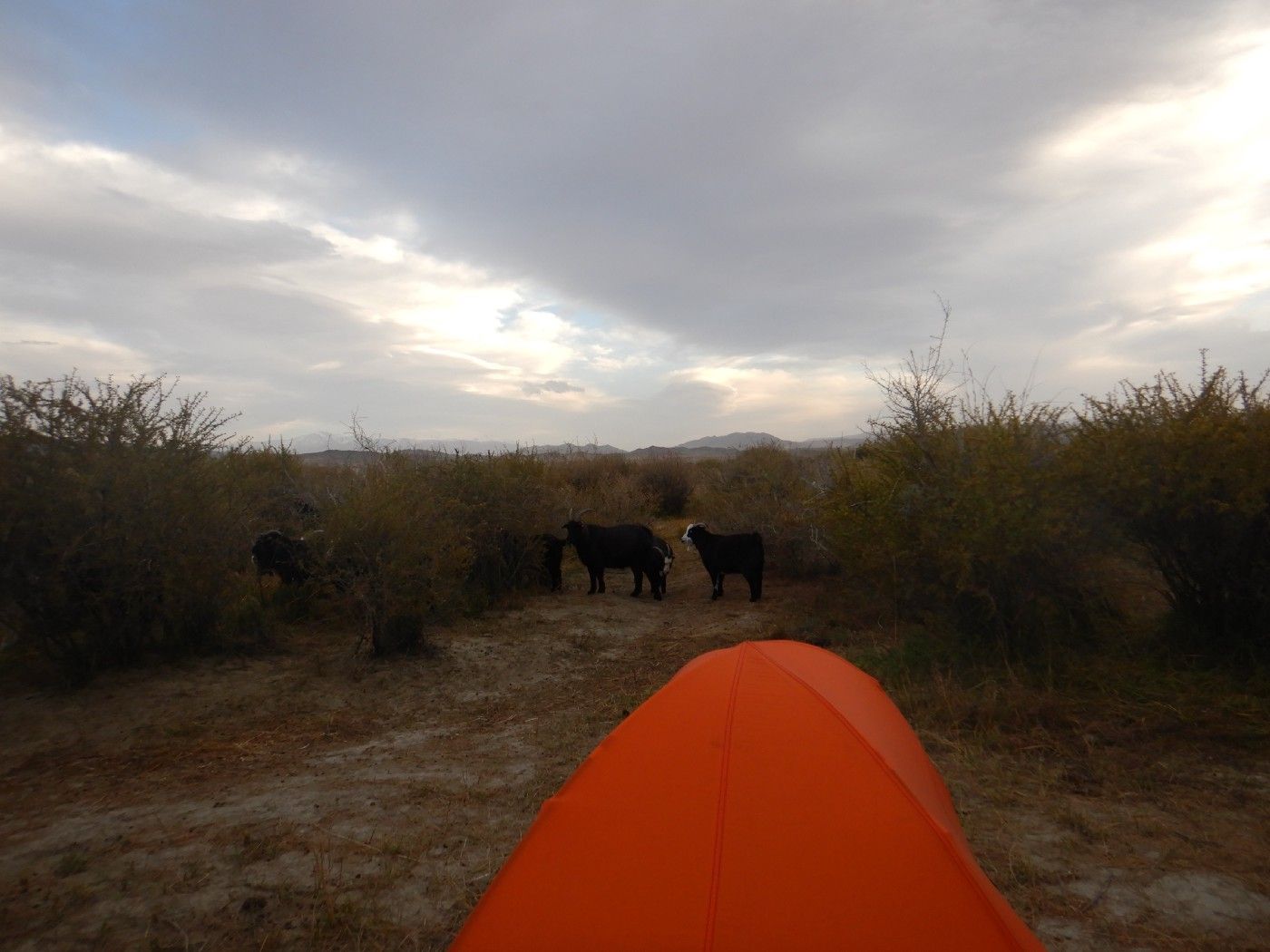
The above is a site a good bit away from the main ger, not out of dog barking range, but protected from the winds. Sometimes goats will nibble at the tent just to test it out for taste. Happily my tent was largely left alone. Just watch your step right outside the vestibule and whatever you do, don’t grab the branches.
Oh yeah. And watch where you squat. Because out here, sand and thorns Get. Into. Everything.
I can’t speak for anyone else but it’s a fine thing to sit a horse, surrounded by mountains, the wind and sun in your face, looking forward to a bowl of steaming green tea sweetened with premier Kazakh honey.
For anyone interested in something similar, please go to Zavkhan Trekking for more information. Mine was a custom-built trip including several homestays. I cannot recommend Zavkhan more highly, nor could I emphasize the extraordinary opportunity to live and learn from ger life in Mongolia. This is one of the world’s last great horse cultures. They are disappearing fast, but they are beyond happy to share their way of life with outsiders. You will come away part of a much larger family, richer for the experience, and for being reminded of how the simplest things mean the most.
Now that’s Life. Being in it.
All photos courtesy Julia Hubbel
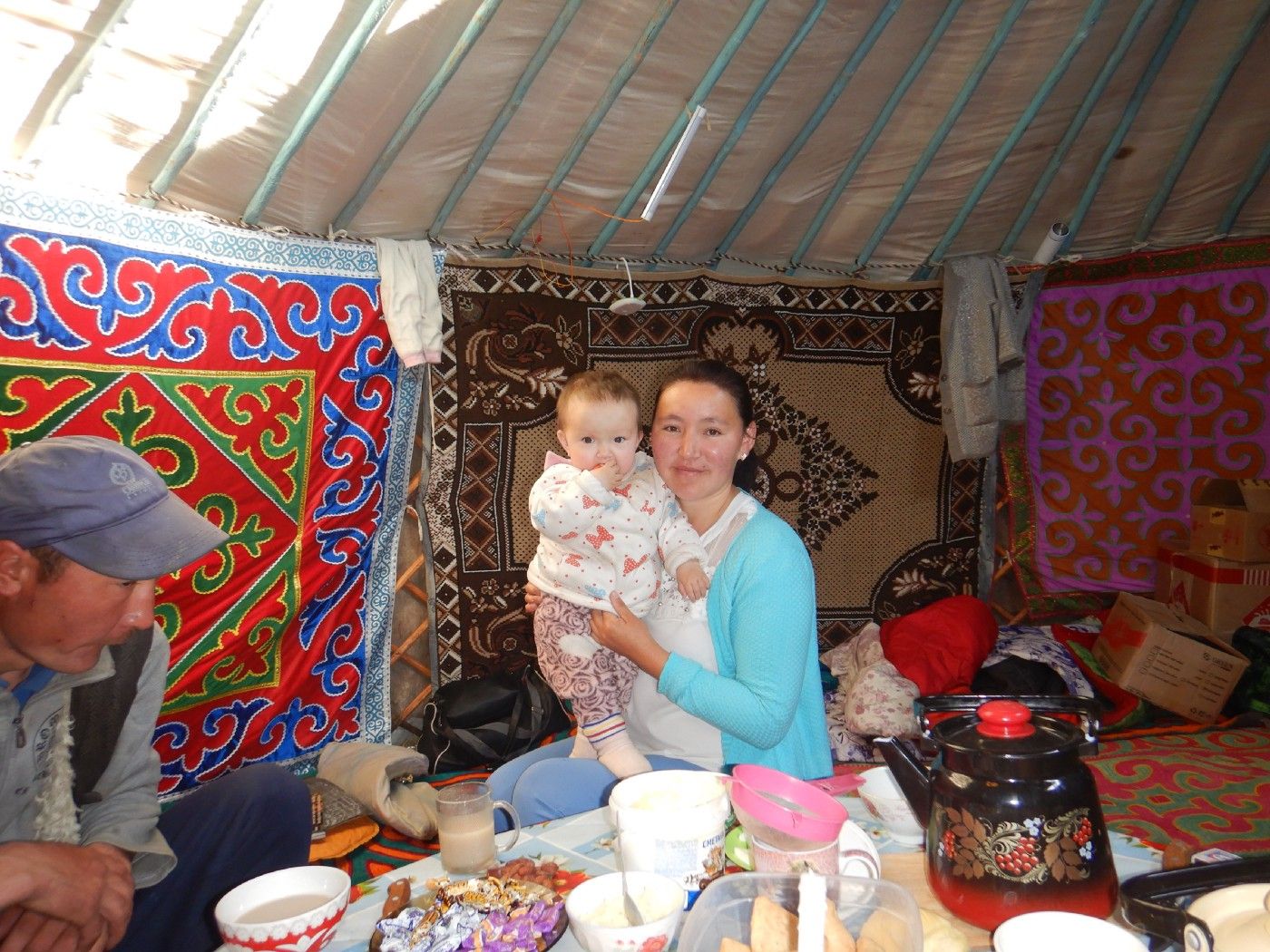
Comments powered by Talkyard.